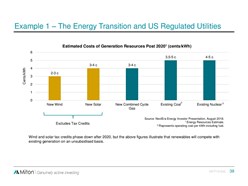“If we keep pulling death from the ground, we will reap death from the skies.”
Van Jones, The Green Collar Economy: How One Solution Can Fix Our Two Biggest Problems
As the price of oil soared to a new high this morning (7/3/22), we are reminded of the fact that what fuels Putin’s War is the huge wealth that has come from decades of oil and gas production.
For the past fifty years, nearly all major conflicts have been driven by the economic power granted to tyrants by our dependency on fossil fuels. While there is no doubt that the carbon economy has delivered huge advances in technology and living standards, we must now recognise the awful footprint it has left in terms of human suffering, as well as climate change.
So, this week we hope the current massive disruption to oil and gas supplies will kick start our determination to find and install alternative energy solutions: not just to save the planet, but also to increase the chances for peace on earth.
Russia’s superpower status was established in the wake of WWII when its population was over 4% of the world total, and when its iron fist across Eastern Europe was being driven by its fast developing nuclear capability. However the communist system failed dramatically to provide economic regeneration which led directly to the collapse of the USSR by 1991.
Now we look at a country whose population is smaller than that of Bangladesh (146m vs. 165m), less than 2% of the world total: by 2050, that gap is forecast to widen by a further 38 million (136m vs. 193m). It may be the largest country by land area (16.4 million sq km — nearly 75% larger than the next, China), but its population density is just nine people per sq km: among large countries by population (>25 million), only Australia and Canada have smaller population densities.
So in terms of land and resources, Russia is well-endowed, and has no need to covet its southern neighbour.
But in terms of economic muscle, these resources are principally oil and gas — fossil fuels: it is that revenue, piling into the Russian exchequer over the past twenty years, that has enabled Putin to build his military machine in order to challenge western democracy. Seen in this light, it's ironic that our own addiction to fossil fuels has enabled the chaos, destruction and death he has brought to Ukraine.
But this is not the first example of havoc being wreaked by fossil fuel wealth. The Middle East has suffered a trail of wars and destruction for decades, caused by people endowed with more money than sense. In this commentary we often speak of the challenge that wealth polarisation brings to individuals, but there is no doubt that it applies every bit as much at a national level.
 So we might yet be able to welcome the shock of such a sudden and massive rise in oil and gas prices as just the trigger we need to take the move to alternative energy much more seriously. The cost of generating electricity by wind, solar and tide has not risen and, as noted in our commentary of 14 October 2019, it was already on a par with fossil fuels several years ago once initial investment costs were discounted.
So we might yet be able to welcome the shock of such a sudden and massive rise in oil and gas prices as just the trigger we need to take the move to alternative energy much more seriously. The cost of generating electricity by wind, solar and tide has not risen and, as noted in our commentary of 14 October 2019, it was already on a par with fossil fuels several years ago once initial investment costs were discounted.
There will now be a significant financial incentive to massively increase generational capacity: just what's needed to make those good intentions at COP 26 a reality. Meanwhile, freeing the world from fossil fuel addiction will cut the legs off Putin’s ambition for domination in Europe.
When historians look back a hundred years from now, the phenomenon of massive fossil fuel consumption could look like the birth pangs of a new civilisation in which we've learned, gradually and painfully, how to live sensibly with each other and in harmony with our environment. Let's hope so — the alternative is not worth thinking about, that there won't be any historians in existence, nor indeed a human race.
Energy conversion is not an easy process: having recently installed air source heat pump technology, and currently researching the slow emergence of hydrogen-fuelled vehicles, I can speak with some experience.
But this shock rise in fossil fuel energy will bring substantial dividends to those who look for opportunities to invest in the new ways of powering our economy: so, perhaps we can look forward to ending the awful legacy, in terms of both warfare and the environment, of carbon.
Gavin Oldham OBE
Share Radio

